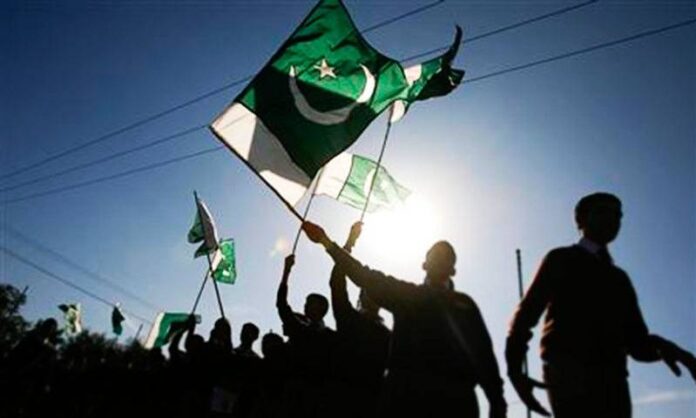Pakistan finds itself once again in the throes of political turmoil, but this time the storm is not entirely homegrown. The recent focus on the political rehabilitation of PTI’s founder, Imran Khan, has sparked suspicions of a well-coordinated international effort aimed at influencing Pakistan’s internal dynamics. Analysts have dubbed this shadowy campaign “Operation Goldsmith,” pointing to the involvement of the Goldsmith family, which is allegedly leveraging its influence to engineer Imran Khan’s comeback on the global stage. This article delves into the implications of this operation and the broader threat it poses to Pakistan’s sovereignty.
The name “Goldsmith” carries significant weight in global diplomatic and media circles. It is suggested that the family’s connections are being used to craft a narrative that positions Imran Khan as a martyr, unjustly targeted by his own country’s institutions. This narrative is not an organic development from within Pakistan, but rather a product of a meticulously planned international agenda. The ties between the Goldsmith family and certain Western diplomats and media outlets indicate a deliberate effort to cast Imran Khan in a favorable light, regardless of the legal charges he faces in Pakistan. The geopolitical undertones of this operation are hard to ignore. The question of why Western powers are so invested in Imran Khan’s political fate leads to broader concerns about the intentions behind such involvement. It’s not just about supporting a former leader; it’s about shaping the future of a strategically significant country in South Asia.
Recent developments in Islamabad’s diplomatic circles have raised alarms about the extent of foreign interference in Pakistan’s domestic affairs. A senior Western diplomat, known for her work in conflict zones like Yemen and Afghanistan, has been unusually active in Pakistan’s political scene. Her meetings with journalists, academics, and so-called human rights defenders go far beyond standard diplomatic engagements. These interactions appear to be part of a broader strategy to drum up support for Imran Khan, who is currently imprisoned on serious charges. Such overt involvement by a foreign diplomat in the affairs of a political figure under legal scrutiny is not just unusual; it is deeply concerning. It begs the question: What are these foreign powers afraid of losing in Pakistan that warrants such blatant interference? The answer likely lies in the strategic importance of Pakistan and the potential disruption to foreign interests should its political landscape shift unfavorably for external actors.
While the international backing for Imran Khan might seem like an advantage, it carries significant risks. Historically, Pakistani public opinion has been wary of leaders who appear too closely aligned with Western interests. This skepticism is rooted in a long history of foreign interference that has often resulted in negative outcomes for Pakistan. The growing perception that Imran Khan is being propped up by foreign powers could backfire, leading to a loss of support among his base and further complicating his political future. Moreover, the disproportionate focus of Western media on Pakistan’s political situation, while ignoring more pressing global crises like the conflict in Gaza, highlights the selective morality that often underpins international journalism. This hypocrisy not only undermines the credibility of Western media but also fuels anti-Western sentiments in countries like Pakistan.
“Operation Goldsmith” is not just a political maneuver; it represents a direct threat to Pakistan’s sovereignty. The involvement of foreign powers in shaping the country’s political future is a stark reminder of the challenges that Pakistan faces in maintaining its independence. The ruling elite and the public must recognize this threat for what it is: an attempt to erode Pakistan’s autonomy and dictate its future from abroad. Pakistan’s response to this challenge must be rooted in a strong, unified stance against external interference. The country’s sovereignty is a fundamental right that cannot be compromised. As the situation continues to evolve, it is imperative that Pakistan remains vigilant and proactive in defending its national interests.
Pakistan has a long history of resisting external pressures and maintaining its sovereignty in the face of significant challenges. However, the current situation demands a renewed commitment to safeguarding the country’s independence. “Operation Goldsmith” is a reminder that the fight for sovereignty is ongoing, and that it requires the collective will of the nation to succeed. As Pakistan navigates this complex landscape, it must do so with the understanding that its future lies in the hands of its people, not in the agendas of foreign powers.



